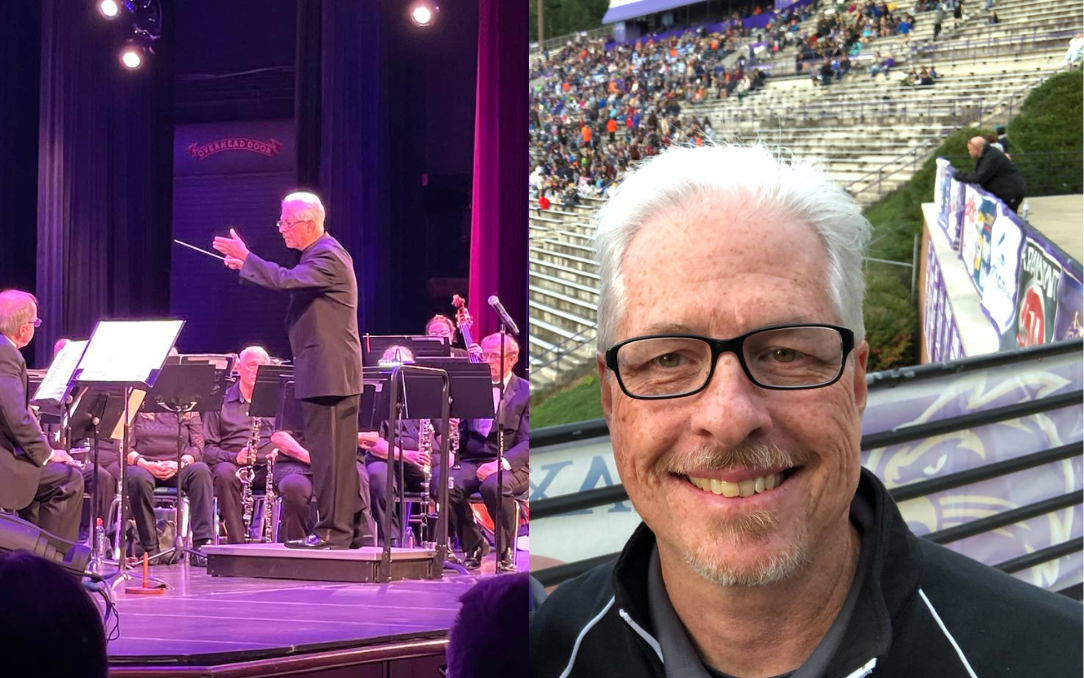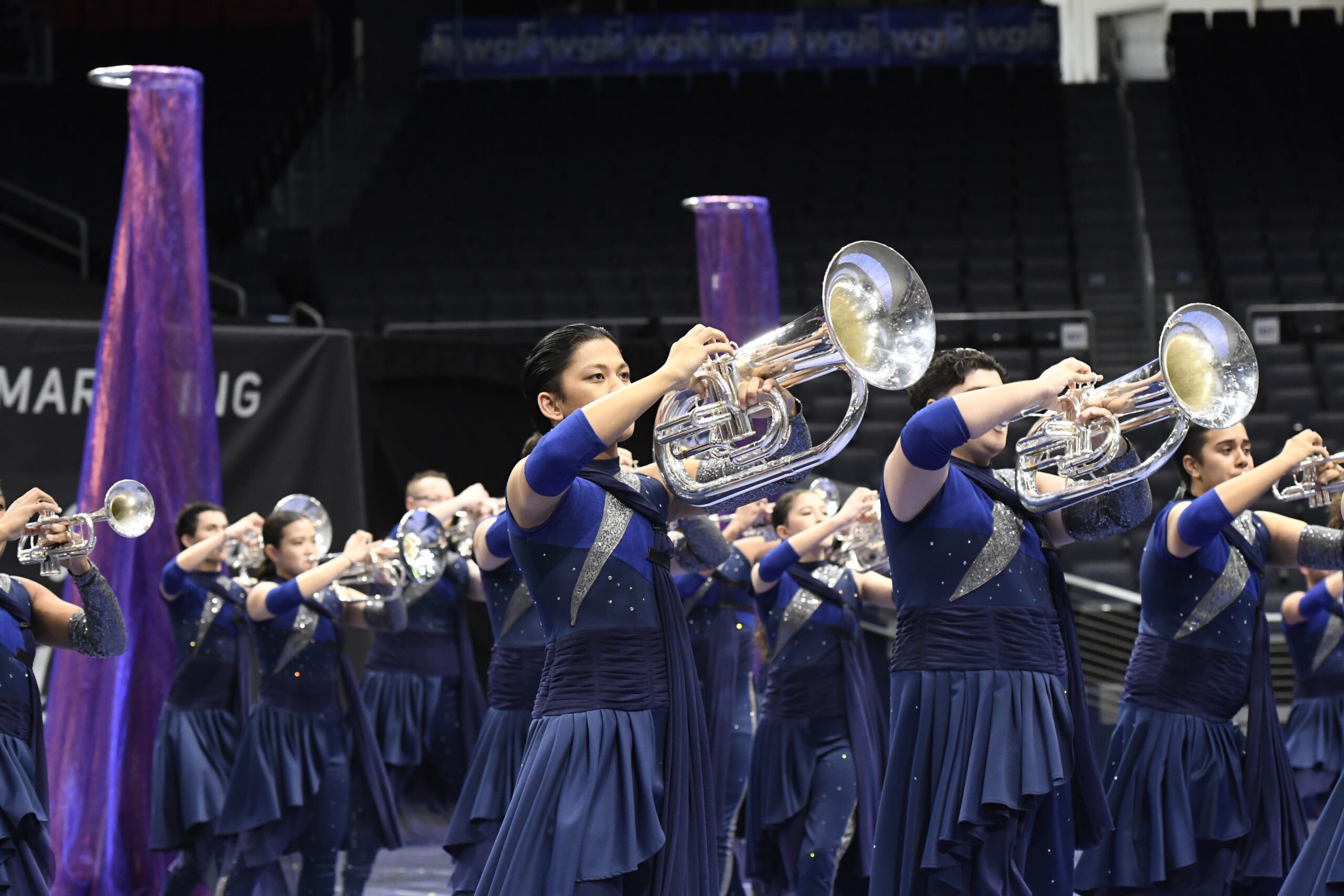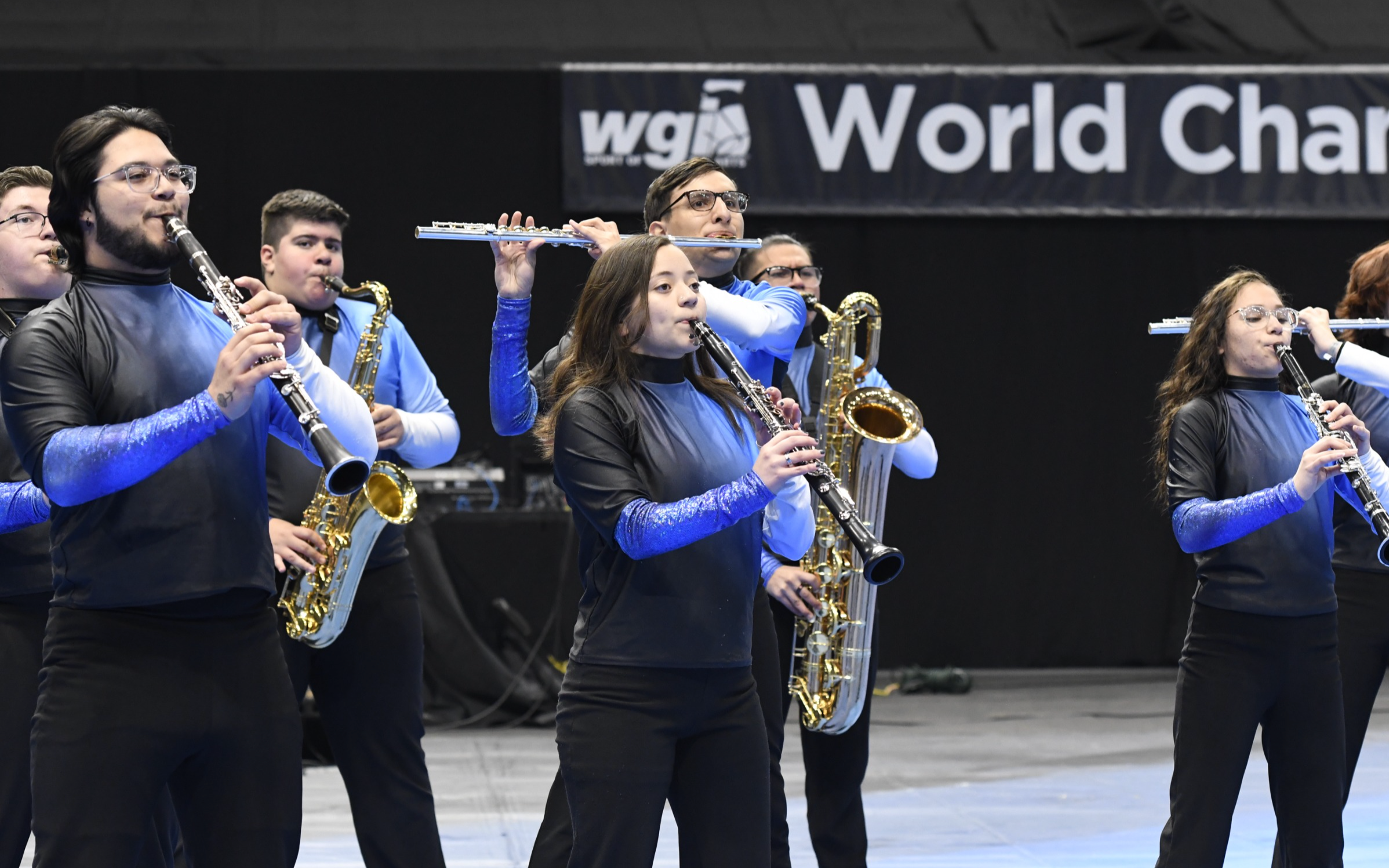By Trudy Horsting
We are all thankful for what judges do for our activity. However, for many people, no matter how long you have been performing, the life of a judge feels unfamiliar, and becoming a judge feels inaccessible. As much admiration as we have for the role, those who fill it can feel distant.
In this series, we strive to remove some barriers that make judging WGI feel so foreign by sitting down with a color guard, percussion, and winds judge. In this story, Randy Greenwell provides insight on judging for the WGI Winds division.
The Journey to Judging
Most judges began the activity as performers, just as we all did. However, each transitioned to the role of judging via a different avenue.
Randy started teaching band camps in college, electing to begin his teaching career rather than marching drum corps. He attended Illinois State University, where he served as the drum major. He explains that the school hosted an invitational marching band contest each year. There, the judges spoke with him about trialing to become a judge.

Randy says, “I started the process of becoming a judge in my first year of teaching in 1985. The only organization training judges at the time was the Central States Judges Association based in Chicago. Marie Czapinski, a founder of WGI, was one of the members of that organization. I entered their training program and did my first trial judging in a summer marching band circuit up in Wisconsin.” Randy passed his orals in 1986, officially becoming a judge.
Transitioning to WGI
Randy explains that becoming a WGI judge seemed like the next logical step after judging in local circuits for 30 years. He had also been involved in adjudicating for Bands of America.
When WGI started the winds program, he was thrilled to become involved. Wayne Markworth reached out to Randy when the division was formed, and he joined the WGI judging community organically.
A Weekend In the Life
Randy explains that preparations for a weekend of judging start before he even arrives at the venue. It’s important to ensure you’re in the right headspace to judge. Before every season, he takes time to practice commentary and get in the groove of judging WGI Winds.
Randy says he also takes some time to listen to his previous commentary throughout the week leading up to a competition. He explains how this helps him to review the judging system, get into the right mindset, and make sure he’s covering all of the bullet points of the scoring system.
While competition weekends are busy, a judge’s job doesn’t end when they’re outside of the arena. It’s a constant process of learning and growing as an adjudicator.
The Joys of the Job
Judges wouldn’t judge if there weren’t a plethora of joys to the job.
One of my favorite things about the job is the opportunity to view the effort and continuous growth of the performers, the designers, and the instructional staff

Secondly, Randy says he loves watching the crowd enjoy the performances each weekend. This activity is truly a community, and seeing crowds enjoy the work other teams have put in throughout the season is wonderful.
Lastly, Randy says, “I love the opportunity I have to spend time with my friends and colleagues in the judging community. They are some of the best human beings on the planet!”
the Challenges of Judging
Randy explains that learning the system of judging for WGI was a challenge, just as it is for any judging situation.
“For WGI, that included having a good understanding of the classification system, the tiered judging system, and all of the important values that WGI instills in the instructional staff and ultimately the judging roster.”
Randy constantly strives to improve his craft. He says, “I take the approach that I have never arrived as a judge. It’s similar to how I viewed my role as a music educator when I worked as a band director. You never arrive. You keep learning every day, and you work to get better at your craft, all the while knowing that you will never reach the top of the mountain.” He continues, “I always feel there is something new to learn, and I try to expand my knowledge every time I judge. The ensembles keep improving, so we owe it to the competitive units to expand our knowledge base.” Randy stresses, “Staying relevant as a judge is everything.”
Sacrifices Made For the Activity
Like the other judges we spoke to, Randy discusses the extensive time commitment of judging. We all know how long and draining competition weekends can be. However, performers and instructors typically travel to competitions in their general geographic vicinity. It’s rarer for a group on the east coast to travel to the west coast for a regional. This is not the case for judges.
Judges travel wherever they are needed, across the country and the world. The extra miles take a toll on both the time and financial commitment of judges. Randy explains that time and money are the two most considerable sacrifices he has made as a judge.
The Future of the Activity

Randy would like to see the continued, focused effort on training ensembles to play better. It’s essential to focus on fundamentals and become better musicians.
To instructors, he says, “Focus on processes that help performers be better on their respective instruments. Teach them ensemble skills that they can use in their individual schools when they get back to campus.”
Sometimes it’s easy to lose sight of the basics. Randy stresses, “Focus on the process of getting better every day. Everything else takes care of itself. Teach the performers to love music.”
Advice To Those Interested in Judging
Becoming a judge isn’t the right path for everyone. There are many ways to be involved in the activity, including many incredibly talented performers, instructors, designers, choreographers, and others who keep WGI alive. Each position is vital to the continued growth of the activity.
If you choose to judge, you must choose it for the right reasons.
Randy says, “Don’t become a judge if you just want the power to control an outcome. Do it because you want to help young people become better musicians and performers, and you want to help young design and teaching staff become better at their craft.”
About the Author:
Trudy Horsting is a graduate student at Arizona State University pursuing her Ph.D. in Political Science. She holds a MA in Political Science from ASU as well as a BA in Political Science and a BA in Writing, Rhetoric, and Technical Communication from James Madison University. While at JMU, she was a four year member and two year captain of the Marching Royal Dukes Color guard and JMU Nuance Winter guard. She was a member of First Flight World Winter guard in 2019 and FeniX Independent World Winter guard in 2020.
































